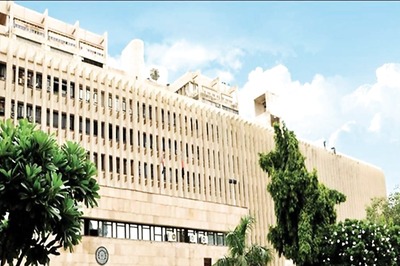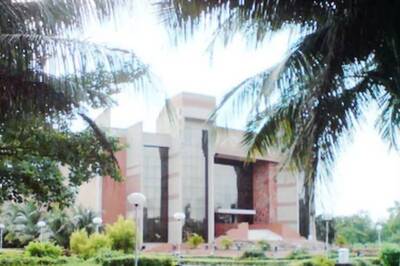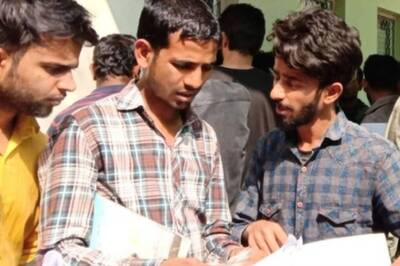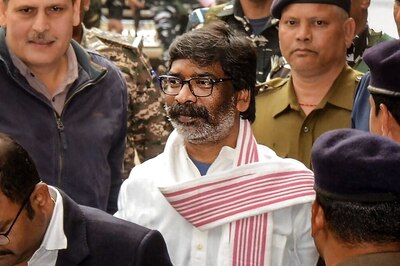
views
Tripoli: The part of Libya under Muammar Gaddafi's control is wracked by shortages in fuel, food and cash despite a veneer of normalcy, according to a UN fact-finding mission.
In a report late Monday, the United Nations said its weeklong mission to the country identified a lack of fuel, rising food prices, a strained medical system, and a cash crunch as some of the problems besetting Gaddafi's government.
Gaddafi's regime and Libya's rebels have been locked in a stalemate on various fronts across the country, despite a NATO bombing campaign directed against government forces. The rebels control eastern Libya and pockets in the west, while Gaddafi clings to the rest, including the capital of Tripoli.
NATO spokeswoman Carmen Romero said Tuesday the bombing campaign, now in its fifth month, will continue as long as needed and that Gaddafi cannot "wait us out."
When NATO took command of operations, it had expected that a sharp blow would quickly persuade Gaddafi to yield power.
NATO has repeatedly emphasized that there must be a political solution to the crisis, and that it is up to the Libyan people to decide on the nation's future. But Secretary-General Anders Fogh Rasmussen has said the alliance considers it impossible to have a transition to democracy while Gaddafi remains in power.
Amid the deadlock on the ground, there may be an emerging international consensus that Gaddafi could stay in Libya if he resigns. British Foreign Secretary William Hague on Monday signed on to the idea first floated last week by his French counterpart. The White House has said the decision is up to the Libyan people.
The Libyan rebels have been divided on the issue. Mustafa Abdul-Jalil, head of the rebels' National Transitional Council, was quoted twice this month, most recently on Monday, as saying he would consider such an arrangement acceptable.
However, each time, he quickly backtracked, in a possible sign of division among the rebels.
Mahmoud Shammam, a rebel spokesman, said Tuesday that Abdul-Jalil was misquoted in his most recent comments to The Wall Street Journal on Monday.
"The proposal (of letting Gaddafi stay) has no value," Shammam said after speaking with Abdul-Jalil. "Let him (Gaddafi) and his family go to hell."
The Libyan government has remained defiant as well and on Tuesday, Prime Minister Al-Baghdadi Al-Mahmoudi dismissed the notion that Gadhafi could ever step down.
"The Libyan population has made itself clear, they are not negotiating the future of Muammar Gaddafi," he said. "They are holding firm to the idea that the leader Muammar Gaddafi should remain the leader of this dignified country."
A rebellion that erupted against Gaddafi's more than four decades in power in mid-February has descended into a civil war with roughly half the country now outside government hands.
In an audio recording broadcast to a mass pro-government rally late Tuesday, Gaddafi called on residents of Khums, east of Tripoli, to take up arms and march on the rebel-held city of Misrata, about 65 miles (104 kilometers) east.
"We will not leave Misrata as a hostage. We'll liberate it," Gaddafi said in a speech broadcast on state TV. "It's shameful if we leave Misrata as a prisoner, to be used by the enemy!"
Gaddafi's troops laid siege to Misrata for some seven weeks, pounding the city with rockets and mortars, before rebels finally evicted government forces from the city.
Gaddafi has often called on loyal tribesmen to march on rebel-held areas, to no avail.
The UN has passed sanctions against the regime that make importing fuel and goods difficult, and at least 30 countries have recognized the rebels as the country's legitimate representatives.
"Although the mission observed aspects of normalcy in Tripoli, members identified pockets of vulnerability where people need urgent humanitarian assistance," Humanitarian Coordinator Laurence Hart said. The U.N. mission concluded its work on Sunday.
The UN said the medical system is strained not only from casualties but also from the departure of thousands of foreign health workers that kept the system running.
Libya's acute fuel crisis is also a major problem, the UN found, with massive lines for gas at stations despite a fuel rationing system.
The UN quoted Libyan experts claiming that supplies might run out in two weeks.
Gasoline and other products are currently imported or smuggled through Tunisia and neighboring Algeria. Libya also has working refineries, but not enough capacity to meet daily demand.
The Islamic fasting month of Ramadan is expected to start Monday and will likely add further strain to the country's food supplies.
"There are also concerns over the unsustainable food supply chain for the public distribution systems, especially as Ramadan approaches and the conflict persists," the UN said. Following a dawn to dusk fast, families during Ramadan are accustomed to large feasts after sundown.
Banks are also restricting the amount of cash people can withdraw, the UN said, after many Libyans withdrew their savings at the start of the crisis.



















Comments
0 comment